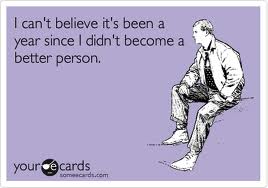Stuart Brown, MD, the director of The National Institute for Play, says that people who do not engage in play pose a health risk: stress-related diseases, depression, addictions, interpersonal violence, and so on. Statements like these interest me, but they rarely cause me to make any real changes in my life. Like most folks, until I am personally affected I can coast along letting good enough be good enough.
1. Play is not frivolous.
The truly great advances of this generation will be made by those who can make outrageous connections, and only a mind which knows how to play can do that. -Nagle Jackson
No matter how many times I’ve returned to a work project with clearer thinking, renewed enthusiasm, greater efficiency, and even flashes of brilliance after taking a play break, I can still forget how amazingly beneficial play is, regarding it as something to do only AFTER I’ve finished working. What hooey!
 |
| Tootsie with some of her favorite toys. RIP, sweet Tootsie. |
We don’t stop playing because we grow old; we grow old because we stop playing. -Benjamin Franklin
Dr. Brown goes so far as to say that the opposite of play is depression. And as anyone who has experienced depression knows, when you're in the midst of depression, it's pretty much impossible to motivate yourself to play.
For me to feel playful, it helps to remember how I liked to play as a child. This reflection usually points me to the forms of play that I enjoy most right now.
As a child I liked to—
- Ride my bicycle. I still love to ride my bike around the neighborhood. Heading in the direction of distant music from the ice cream truck means that it's going to be a super fun ride. A few years ago I biked from Tucson to Mexico...what a blast!
- Form bands in friends’ garages. Only a few minutes of running my fingers over the piano keys makes space in my body and mind like nothing else can. (Funny that I now record songs using an app called Garage Band.)
- Tell stories. Blogging was something that I swore off for years. While I haven't yet found my full-on blog groove, blogging is becoming more and more like storytelling play to me.
- Do flips. "Flips" is the word that my friends and I used for moving our body. Many of my happiest moments still involve some kind of body movement: yoga, kickboxing, busting a move for no reason when nobody is looking.
- Make funny noises. I still make funny noises.
- Rollerskate. When heelies came out I had a flashback rush of joy and bought a pair immediately. I'm still a little afraid of them and they mainly stay in my closet, but I haven't given up on messing around with these. Just seeing the box makes me happy.
- Cook with my Easy Bake Oven. The kitchen is a giant laboratory for me to mix this with that. I can get lost in food play for hours.
- Play School and Haunted House. I had to be the teacher...or the main ghost.
 |
| Schoolmarm/ghost hybrid |
You can discover more about a person in an hour of play than in a year of conversation. -Plato
When I meet someone, I like to imagine how they might describe themselves in a personal ad—if total honesty were such a thing in those ads (I like to imagine a personal ad description for myself too—on the “good” days and on the "feel like pooey" days).
If I were looking for friendship, a romantic connection, or a work relationship, if the person wrote I do not play, no matter how many other amazing qualities they listed...NEXT!
 |
| I would totally answer their personal ad. |
If I Had My Life to Live Over, by Nadine Stair (age 85)
I'd dare to make more mistakes next time.
I'd relax, I would limber up.
I would be sillier than I have been this trip.
I would take fewer things seriously.
I would take more chances.
I would climb more mountains and swim more rivers.
I would eat more ice cream and less beans.
I would perhaps have more actual troubles,
but I'd have fewer imaginary ones.
You see, I'm one of those people who live
sensibly and sanely hour after hour,
day after day.
Oh, I've had my moments,
And if I had it to do over again,
I'd have more of them.
In fact, I'd try to have nothing else.
Just moments, one after another,
instead of living so many years ahead of each day.
I've been one of those people who never goes anywhere
without a thermometer, a hot water bottle, a raincoat
and a parachute.
If I had to do it again, I would travel lighter than I have.
If I had my life to live over,
I would start barefoot earlier in the spring
and stay that way later in the fall.
I would go to more dances.
I would ride more merry-go-rounds.
I would pick more daisies.






